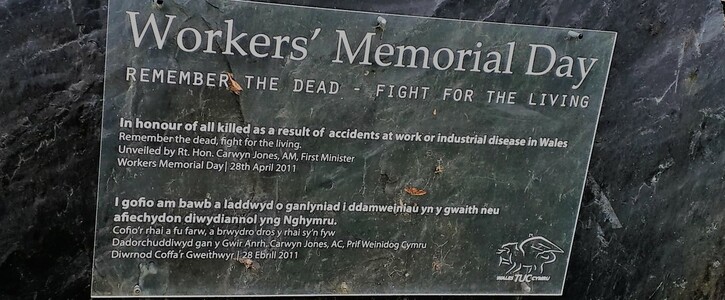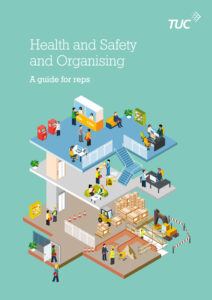Congress, along with the Government, the Health and Safety Authority (HSA), Ibec, the CIF and NISO will collectively mark Workers’ Memorial Day Ireland on 28 April at the national and annual commemorative event to remember people who died, were injured, made ill and bereaved through work-related incidents.
Congress Assistant General Secretary Owen Reidy will be joined by Mark Cullen, interim CEO of the Health and Safety Authority, and Minister Neale Richmond TD who will lay a wreath on behalf of the State to remember those workers we have lost.
In Ireland in the ten-year period between 2013 and 2022, 461 people died in work-related incidents and many thousands more were severely injured or made ill. In 2022 alone, 27 people died in work-related incidents.
These are unacceptable figures which can be reduced through a combined and intensified effort by all concerned. By working together and promoting the practice of safety and health in workplaces throughout Ireland we will achieve a significant drop.
What can you and your organisation do to support this initiative?
There are a wide range of initiatives that your organisation can consider including:
- Get involved in raising awareness by using the official Workers’ Memorial Day Ireland logo on your website, social media activity, presentations, email signatures, displays and in offices and workplaces. The logo is available at hsa.ie/workersmemorialday
- Publish relevant website/newsletter content highlighting the importance of a positive and proactive approach to work-related safety and health
- Host your own ceremonial event or minutes silence to mark the occasion
- Publish appropriate social media content. For example, take a photo of your activity or event and share it on social media. Please use the hashtag #WorkersMemorialDay and #IWMD23 on any posts and tag relevant organisations, including @NISOIreland @TheHSA on Twitter
- Add an overlay to your workplace or personal Twitter or Facebook account at: https://twibbon.com/Support/workers-memorial-day-11
- Take this opportunity to host an in-house training sessions or a toolbox talk
- Consider a guest speaker presentation to staff from an appropriate source, e,g. a Safety Representative
- Issue a press release to your local/national media marking your event or the day itself
Workers’ Memorial Day Ireland 2023
















